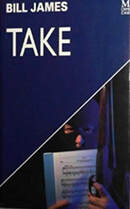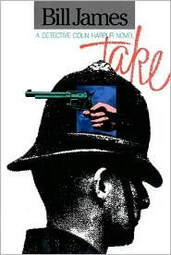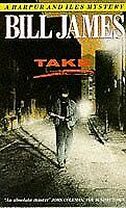
In Take, the reader spends more time with the criminals than the cops, and the choice is effective and illuminating: James sketches intriguing portraits of Planner and his gang, which includes Tyrone and Dean, two young bucks who are looking out for themselves; Mansel Billings, a self-described mother hen caring for his own bedridden mother; and Hoppy Short, a dim but available gun for hire. There is friction among the group as everyone waits – Planner’s daughter is attracted to Tyrone, for one thing – but Mansel tries to keep spirits up and Planner tries to keep control.
There are also two informants waiting for a payout, a canteen worker at the truck company and a desk policeman looking to open his own restaurant. There is a rumor that there may be more money in the van than usual, as a third driver has been assigned to the route. It’s also possible that the police already know of the plan, and no one wants to drive into an ambush, especially when snipers like Robert Cotton are on the force and at the ready.

As for the “mock-heroic” descriptor, I think that may be a little too dismissive. Almost always, the author makes his characters psychologically truthful; we might not agree with the choices made (of both the police and the criminal plotters) but we always understand the motivation and logic that brings them there. Planner and his gang aren’t being mocked; morality aside, their focus on their goal of stealing is just as competent and thorough as Harpur’s actions to sniff out and stop illegal activity. Each side has its networks, each side struts on the same stage, castmates destined to share the same sets and perform in a final drama together.

Used throughout both as a verb and a noun, Take is another winning entry in an unusual and consistently engaging crime series. The story whips along, conflicts and complications are constant, and the dialogue and prose are always colorful and often bitingly funny. I appreciate James’ world-building, and his ongoing refusal to label anyone “hero” or “villain” but instead explore every character along the way and have them act truthfully, however flawed their thinking and ethics may be. No community theater director could ask for more.
 RSS Feed
RSS Feed